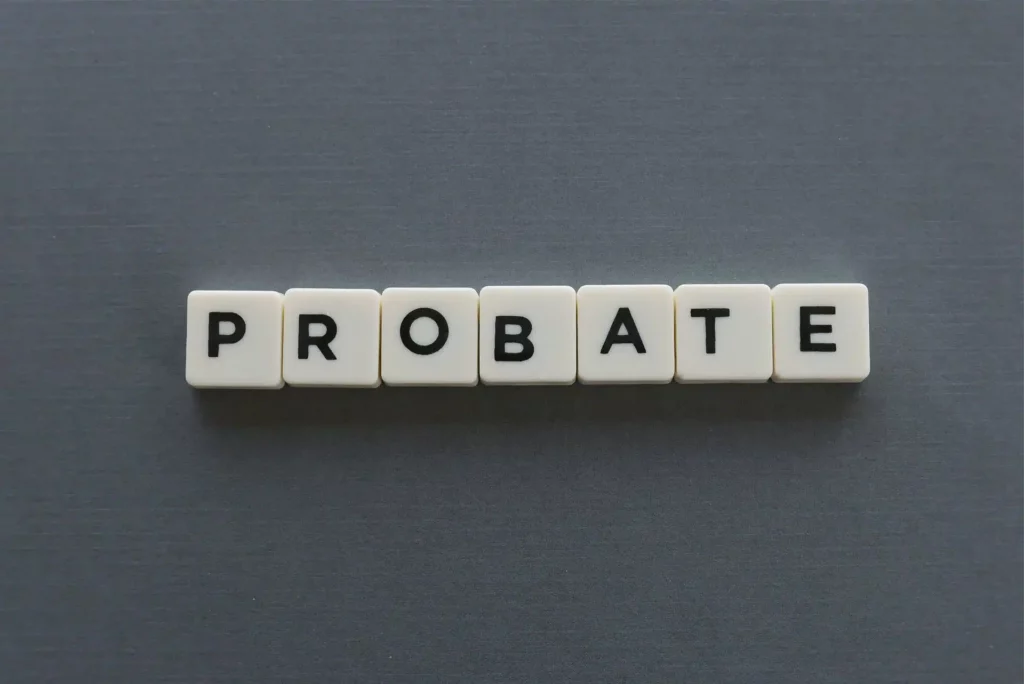Inheriting a home in Miramar, FL, can be both a blessing and a burden. The property may hold sentimental value, but it can also come with responsibilities such as upkeep, taxes, and dealing with the complex probate process. If you’ve inherited a property and are asking, “Can I sell my house for cash in Miramar, FL, if it’s inherited or going through probate?” the answer is yes!
This guide will walk you through everything you need to know about selling an inherited house during probate in Florida, especially if you’re considering selling it for cash.
Understanding the Probate Process and Its Effect on Your Property Sale
What Is Probate?
Probate is the legal process through which the assets of a deceased person are distributed to their heirs or beneficiaries. In Florida, probate involves validating the decedent’s will, paying off debts, and transferring property ownership. The process ensures that the estate is managed according to the decedent’s wishes, and if there is no will, the estate will be divided according to Florida’s intestacy laws. For a detailed breakdown of the probate process, see Florida Senate: Chapter 733 – Florida Probate Code.
Can You Sell an Inherited Property During Probate?

Yes, you can sell an inherited property during probate in Florida. However, the process is slightly more involved than selling a property outside of probate. The personal representative (also known as the executor) of the estate must obtain court approval before selling the property. This ensures the sale complies with the terms of the will, or in the absence of a will, with the state’s laws.
Steps to Sell a House During Probate in Florida
- Initiate Probate: The probate process begins when the decedent’s will is filed with the court. If there is no will, Florida’s intestate succession laws will be followed to distribute assets.
- Appoint a Personal Representative: The court appoints an executor or personal representative to manage the estate, which includes handling the real estate transaction.
- Request Court Approval for Sale: The personal representative must petition the court to approve the sale of the property. This approval is necessary to ensure the sale benefits the estate and complies with the decedent’s wishes.
- Negotiate and Accept Offers: Once court approval is granted, the personal representative can accept offers from potential buyers. If selling for cash, the process is often quicker, which can be an advantage during probate.
- Close the Sale: Closing the sale involves transferring the title of the property and ensuring that all legal requirements are met. The proceeds from the sale will be used to pay off any remaining debts and then distributed to the beneficiaries.
Why Choose a Cash Sale for Your Inherited Property?
When selling an inherited home during probate, opting for a cash sale can offer several distinct advantages. Here’s why cash sales are an attractive option for many homeowners going through probate:
Advantages of Selling for Cash
- Speed: Cash sales can close much faster than traditional sales, sometimes within 7 to 10 days. This is especially important when you are trying to settle an estate quickly.
- No Repairs or Cleaning: Cash buyers typically purchase homes as-is, which means you don’t have to spend time or money on repairs or cleaning. This is especially beneficial for properties that may have been neglected or require significant repairs.
- No Agent Fees: In a traditional home sale, real estate agent commissions can eat into your profits, usually around 5% to 6% of the sale price. With cash sales, there’s no need for an agent, which means you keep more of the proceeds.
- Certainty of Sale: Cash buyers are less likely to back out of the sale or delay the process, as they don’t rely on financing. This reduces the chance of the sale falling through, which is common in traditional sales.
- Simplified Process: Since cash buyers typically waive the need for appraisals and inspections, the process is streamlined, reducing the overall complexity of the sale.
Potential Challenges of Selling for Cash
Despite its many benefits, selling an inherited house for cash can come with some downsides:
- Lower Offers: Cash buyers often purchase properties at a discount, as they are taking on the risk of repairs and potential title issues. This means you may receive a lower offer than you would in a traditional sale.
- Limited Buyer Pool: Cash buyers are not as common as traditional buyers who rely on financing. This can limit your options, but specialized cash buyers who work in probate and inherited property sales are often available.
- Emotional Factors: If the inherited property has sentimental value, you may feel conflicted about selling it quickly, particularly if other family members are involved in the decision.
Legal Aspects of Selling an Inherited Property in Florida
Selling an inherited property in Florida requires understanding the legal obligations and steps involved in the process. Here’s a detailed look at the legal side of things:
Required Documents for Selling an Inherited Property
To sell an inherited home, the following documents may be required:
- Death Certificate: This is required to prove that the decedent has passed away and to begin the probate process.
- Will or Trust Documents: If the decedent had a will or trust, these documents will outline how the property should be distributed. If there is no will, Florida’s intestate laws will determine how the estate is divided.
- Letters of Administration: This document is issued by the court and designates the personal representative (executor) who is responsible for managing the estate, including selling property.
- Title Deed: This proves the decedent’s ownership of the property.
- Tax Records: Property taxes and any unpaid debts associated with the property must be cleared before the sale.
Potential Liabilities Associated with the Property
Inherited homes can come with certain liabilities, such as:
- Mortgage or Liens: If the decedent had a mortgage or other liens on the property, these must be paid off before the sale can be completed.
- Property Taxes: Any unpaid property taxes will be a lien on the property, and the seller must ensure these are settled before closing the sale.
- Outstanding Debts: If there are other debts associated with the estate, such as credit card debts, they must be addressed before the proceeds from the sale can be distributed to the heirs. For guidance on managing debts in probate, visit How Do You Manage Debts and Expenses in Probate.
Pros and Cons of Selling an Inherited Property for Cash
To help you better understand the decision-making process, here’s a table comparing the advantages and disadvantages of selling an inherited property for cash:
| Pros | Cons |
|---|---|
| Quick closing process | May receive below-market offer |
| No repairs or cleaning required | Limited buyer pool |
| Avoid paying agent commissions | Potentially less emotional closure |
| Certainty of sale | May not maximize sale price |
| No financing contingencies | Less flexibility in negotiating |
How to Choose the Right Buyer for Your Inherited Property
When selecting a buyer for your inherited home, it’s important to choose someone who understands the complexities of probate sales. Here are some tips on how to select the right buyer:
Key Factors to Consider
- Experience: Look for buyers who have experience with probate properties and understand the process. Probate sales involve extra paperwork and court approval, so an experienced buyer will make the process smoother.
- Reputation: Research potential buyers’ reputations. Look for reviews, testimonials, and any other feedback that can help you assess their reliability and professionalism.
- Offer Terms: Consider the terms of the offer carefully. While a higher cash offer might seem attractive, make sure the buyer is willing to meet the timeline and conditions that suit your needs.
- Closing Timeline: If you need to close quickly to move forward with the estate distribution, make sure the buyer can meet your timeline.
- Flexibility: Some buyers may offer more flexible terms, such as waiving certain fees or offering extended time to vacate the property. This can be helpful in easing the transition.
Closing the Sale
Once you’ve accepted an offer and received court approval, the final step is to close the sale. The closing process involves several key steps:
- Title Transfer: The property’s title will be transferred to the buyer once all conditions are met. It’s important to ensure that the title is clear and free from any disputes.
- Disbursement of Funds: After closing, the proceeds from the sale will be distributed according to the decedent’s will or Florida’s intestate succession laws. Any outstanding debts or expenses related to the estate will be paid first, and the remaining funds will be split among the heirs.
- Finalizing the Sale: The closing agent will handle all necessary paperwork and ensure the sale is legally binding. Once everything is signed, the sale is complete.
Common Questions When Selling an Inherited Property in Florida
1. How long does the probate process take in Florida?
- Typically, probate in Florida can take anywhere from 6 months to a year, depending on the complexity of the estate.
2. Can I sell an inherited property without going through probate?
- If the property is held in a trust or there’s joint ownership with survivorship rights, you may be able to avoid probate.
3. Are there any tax implications when selling an inherited property?
- Yes, there may be capital gains tax on the sale, but the property is typically inherited at its market value at the time of the decedent’s death, which could minimize the tax burden.
4. What happens if there are multiple heirs?
- If there are multiple heirs, all must agree to sell the property. If there’s disagreement, legal mediation may be required.
Final Thoughts
Selling an inherited property during probate in Miramar, FL, can be a practical solution to handle estate matters efficiently. If you’re looking for a fast and hassle-free way to sell, opting for a cash sale could be the best choice. At Property Solution Services LLC, we specialize in buying homes in any condition, including properties going through probate. We understand the complexities involved in selling an inherited property and are here to guide you through each step of the process.
By choosing a cash sale with Property Solution Services LLC, you can bypass lengthy repairs, agent commissions, and the traditional waiting game. Our team will help you navigate the legal aspects, ensuring a smooth and timely transaction. Whether you’re dealing with a property full of memories or facing the challenges of probate, we’re here to make the sale as simple as possible. Contact Property Solution Services LLC today to receive a fair, no-obligation cash offer and take the next step in selling your inherited property with confidence.

